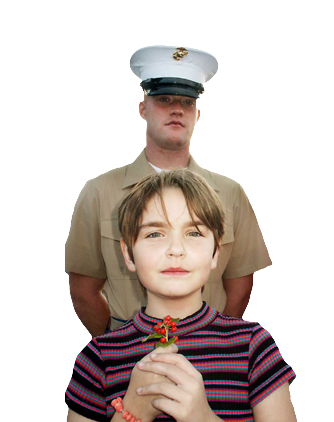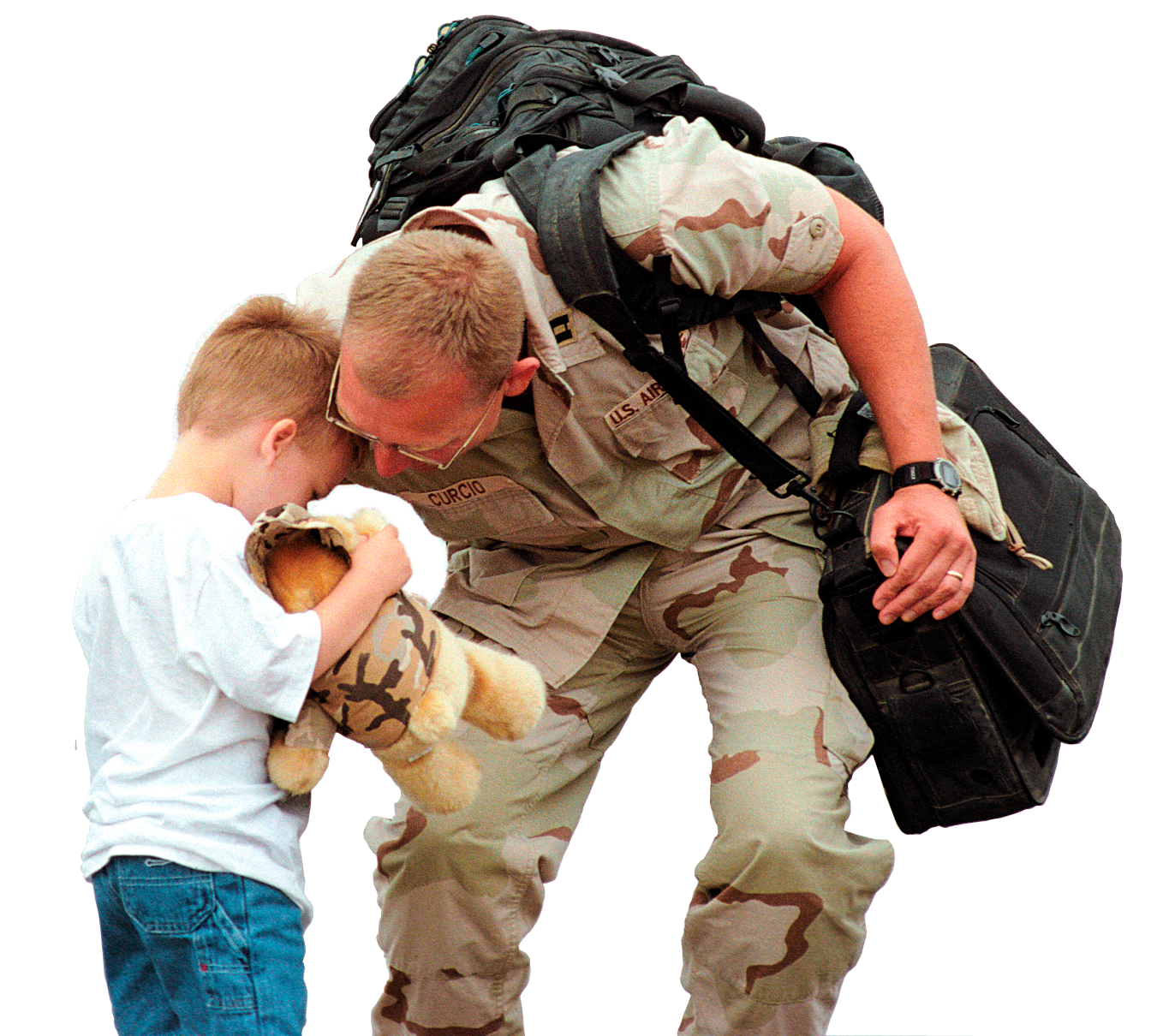[caption id="attachment_3851" align="alignleft" width="280"] Army Cpl. Joe Sanders and Spc. Albert Godding pose April 27, 2010, after Godding received a Meritorious Service Medal for preventing Sanders' suicide in Iraq in 2008. U.S. Army photo by Zach Morgan[/caption] FORT POLK, La.,– Aug. 7, 2008, was a hot day in Iraq, and it seemed as if the walls were closing in on Army Spc. Joe Sanders.
Army Cpl. Joe Sanders and Spc. Albert Godding pose April 27, 2010, after Godding received a Meritorious Service Medal for preventing Sanders' suicide in Iraq in 2008. U.S. Army photo by Zach Morgan[/caption] FORT POLK, La.,– Aug. 7, 2008, was a hot day in Iraq, and it seemed as if the walls were closing in on Army Spc. Joe Sanders.
 Army Cpl. Joe Sanders and Spc. Albert Godding pose April 27, 2010, after Godding received a Meritorious Service Medal for preventing Sanders' suicide in Iraq in 2008. U.S. Army photo by Zach Morgan[/caption] FORT POLK, La.,– Aug. 7, 2008, was a hot day in Iraq, and it seemed as if the walls were closing in on Army Spc. Joe Sanders.
Army Cpl. Joe Sanders and Spc. Albert Godding pose April 27, 2010, after Godding received a Meritorious Service Medal for preventing Sanders' suicide in Iraq in 2008. U.S. Army photo by Zach Morgan[/caption] FORT POLK, La.,– Aug. 7, 2008, was a hot day in Iraq, and it seemed as if the walls were closing in on Army Spc. Joe Sanders.Sanders had deployed to Iraq with the 10th Mountain Division’s 5th Battalion, 25th Artillery Regiment, 4th Brigade Combat Team. Sander’s wife was leaving him, and he had several months left to serve in Iraq when he attempted suicide by turning his weapon on himself.His battle buddy, Army Spc. Albert Godding, had seen the signs of Sanders' stress, and removed the firing pin from his friend’s rifle earlier that day. The weapon misfired and Godding confronted his friend about the attempt. Sanders sought counseling and made it home alive. On April 27 here, Godding received the Meritorious Service Medal for his actions. He is now with the 4th Infantry Division’s 1st Brigade Combat Team at Fort Carson, Colo., and was at Fort Polk for a pre-deployment rotation with his unit when he received the award. Sanders is thankful his friend had intervened in Iraq. "Every day I wake up, I have to thank Godding," he said. "If it wasn't for him, I wouldn't have gotten to experience my fiancée. I wouldn't have gotten to lead troops, or attend schools and learn. Those are things I love to do." Since redeploying in 2009, Sanders has attended the Warrior Leaders Course, been promoted to corporal and was selected for marksmanship school. He is with the same battery, is leading troops, and he’ll deploy this year to Afghanistan. He also is engaged to be married this month. Helping others, Godding said, is something everyone should do. "A lot of people crack jokes and call me hero, but if I ever see anybody who looks like they're feeling down, I talk to them just to make sure everything's OK," he said. "I'm not just trying to stop people from committing suicide. I'm trying to help them any way I can." Though he appreciates the recognition, Gooding said, the important thing is that his friend is alive and thriving. "It's been a long time since the event, and I didn't think I was going to get an award this big," he said. "I didn't need an award; I thought what I did was reward enough." The officer who commanded 5th Battalion, 25th Artillery, at the time of the incident noted that one person can make a huge difference. "Godding is circumspect about his role,â€Â said Army Lt. Col. Dennis Yates, now the senior fire support trainer and mentor at the Joint Readiness Training Center here. “He says it was just the right thing to do, but it is an illustration of the power that one person can have in another's life.â€Â Yates sees “unlimited potentialâ€Â for Sanders and Godding. "They're both great soldiers,â€Â he said. “Sanders has big plans - no matter what he sets his mind to, he'll do well. This experience is going to help form both of them long-term. The taste of success will be that much sweeter for Sanders from here on out because of what his friend did for him." Despite his low-key manner, Godding realizes the seriousness of suicide and Sanders' actions. "It made me realize that suicide is real," he said. "Sanders is not the type of soldier who would do that. It could happen to anybody." Friends and supervisors who notice changes in behavior should address it, Sanders said. "It doesn't hurt to ask how a person is feeling," he said. And, he added, soldiers shouldn’t be timid about seeking help. "Don't be afraid to get help, even if you have to take a battle buddy with you," Sanders said. "It made me feel a thousand times better when I was able to talk to someone about my trouble. Don't be afraid about what people will think about you, either. I did not hear any negativity in my unit about being a weak soldier. If anything, I was a lot stronger for going to get help." Yates said a unit’s climate is a big factor when it comes to soldiers looking out for one another, and that climate starts with leadership. "Commanders have to constantly ask themselves, 'Am I creating the type of environment that encourages leaders and soldiers to take care of each other?'" he said. "Not only did Sanders have a battle buddy who was on the ball, but he had a platoon leader and platoon sergeant who understood what was going on in their soldiers' lives." Sanders happened to be on the forward operating base with Godding because his platoon leadership saw him struggling and sent him back for counseling. "It was a stroke of luck that Godding happened to be on the [base] at the same time," Yates said. "Not a day goes by that I don't think about it. It was that significant." Yates pointed out that Army culture has shifted from the old model, in which soldiers were expected to 'tough it out' and seeking help was a sign of weakness. "As we become more experienced, we get a more mature view of what it means to be tough and temper it with compassion," he said. "There is still a stigma among family members that they can't let their units know about their problems. That's nonsense. No one will look down on you for coming forward. It was a big challenge for me to convince the spouses that they don't have to suffer in silence." Godding addressed the other difficulty of dealing with potential suicide. "It's hard sometimes to ask your friend about how they feel, because you don't want to intrude," he said. "When you spend time with your battle buddies during field training or [readiness training] rotations, you know when something's off and they're not acting right. It doesn't hurt to ask if they are OK and invite them to talk about it." Sanders said the kinds of issues that resulted in his suicide attempt have become more common, so talking about them no longer creates a potentially negative spotlight. "Because we deploy so often, soldiers are losing their friends and wives," he explained. "It's not uncommon to feel the way I did. Because more people are experiencing this, it's not such a taboo subject." As he prepares for his deployment, Sanders said he hopes to pass along the help he received to the soldiers he now leads. "I have more experience now," he said. "I know what to expect and talked to my fiancée about it. She's from a military family, so she knows about deployments. I got lucky in that respect." Sanders said being away from family and friends often is the hardest part of a deployment. "Fighting doesn't bother soldiers,â€Â he said. “We do that all day long. What gets to us is being away from our loved ones. It will be tough, but I'm ready. I know what my soldiers are going through. I will be able to help them cope." Many resources are available for soldiers and family members who are dealing with depression, post-traumatic stress disorder and other problems, officials here noted. The chain of command, unit chaplains and Army Community Service can provide help, and Military OneSource is a free service available by phone at 800- 342-9647 or online at http://www.militaryonesource.com. May 18, 2010: By Zach Morgan- Fort Polk Guardian






